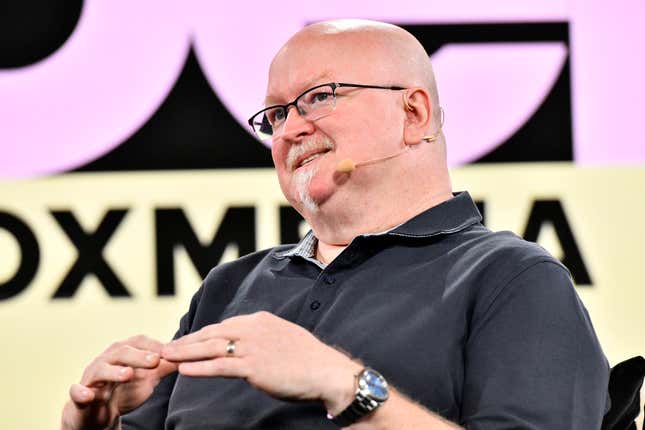
Microsoft’s multi-year, multi-billion dollar partnership with OpenAI likely came out of a fear of Google dominating the AI race, an email shows.
The heavily redacted email, released Tuesday as part of the Department of Justice’s antitrust case against Google, shows that Microsoft’s chief technology officer, Kevin Scott, was worried about the company’s artificial intelligence capabilities compared to those of the search engine giant.
“[A]s I dug in to try to understand where all of the capability gaps were between Google and us for model training, I got very, very worried,” Scott wrote in a 2019 email to Microsoft chief executive Satya Nadella and co-founder Bill Gates.
Scott, who is also the executive vice president of AI, wrote that he had initially been “highly dismissive” of efforts by OpenAI, DeepMind (acquired by Google in 2014), and Google Brain to scale their AI ambitions, but “started to take things more seriously” after seeing Microsoft “couldn’t easily replicate” the natural language processing (NLP) models the companies were building.
“Even though we had the template for the model, it took us ~6 months to get the model trained because our infrastructure wasn’t up to the task,” Scott wrote about the BERT language model. In the time it took Microsoft to figure out how to train the model, Google, which already had BERT six months before Microsoft’s efforts started, “had a year to figure out how to get it into production and to move on to larger scale, more interesting models,” he wrote.
Scott added that auto-complete in Google’s Gmail app “is getting scarily good” due to BERT-like models, which were boosting Google’s competitiveness.
While Microsoft had “very smart” employees focused on machine learning on its different teams, “the core deep learning teams within each of these bigger teams are very small” and still had a long way to go before scaling up to Google’s level, Scott wrote in the email, which had the subject line, “Thoughts on OpenAI.” “[W]e are multiple years behind the competition in terms of ML scale.”
Nadella responded to the email, copying Microsoft’s chief finance officer, Amy Hood, writing: “Very good email that explains, why I want us to do this... and also why we will then ensure our infra folks execute.”
Neither Microsoft, Google, nor OpenAI immediately responded to a request for comment.
In July 2019, Microsoft made its first investment into OpenAI of $1 billion to support the company’s efforts to build artificial general intelligence (AGI). Through the partnership, OpenAI said Microsoft would become its exclusive cloud provider, and that the two would jointly develop Microsoft Azure’s AI supercomputing capabilities.